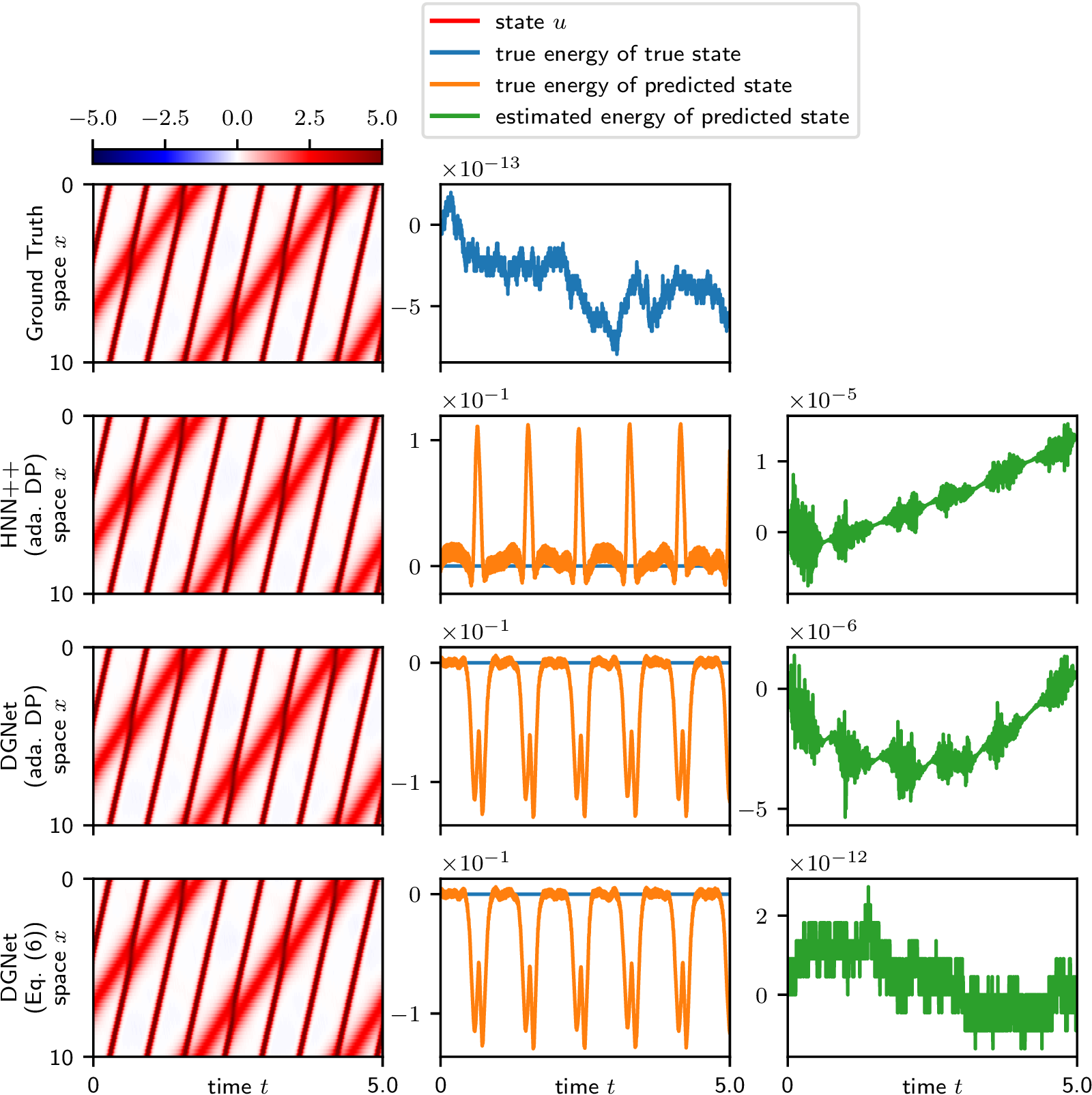Deep Energy-Based Modeling of Discrete-Time Physics
Physical phenomena in the real world are often described by energy-based modeling theories, such as Hamiltonian mechanics or the Landau theory, which yield various physical laws. Recent developments in neural networks have enabled the mimicking of the energy conservation law by learning the underlying continuous-time differential equations. However, this may not be possible in discrete time, which is often the case in practical learning and computation. Moreover, other physical laws have been overlooked in the previous neural network models. In this study, we propose a deep energy-based physical model that admits a specific differential geometric structure. From this structure, the conservation or dissipation law of energy and the mass conservation law follow naturally. To ensure the energetic behavior in discrete time, we also propose an automatic discrete differential algorithm that enables neural networks to employ the discrete gradient method.
PDF Abstract NeurIPS 2020 PDF NeurIPS 2020 Abstract
